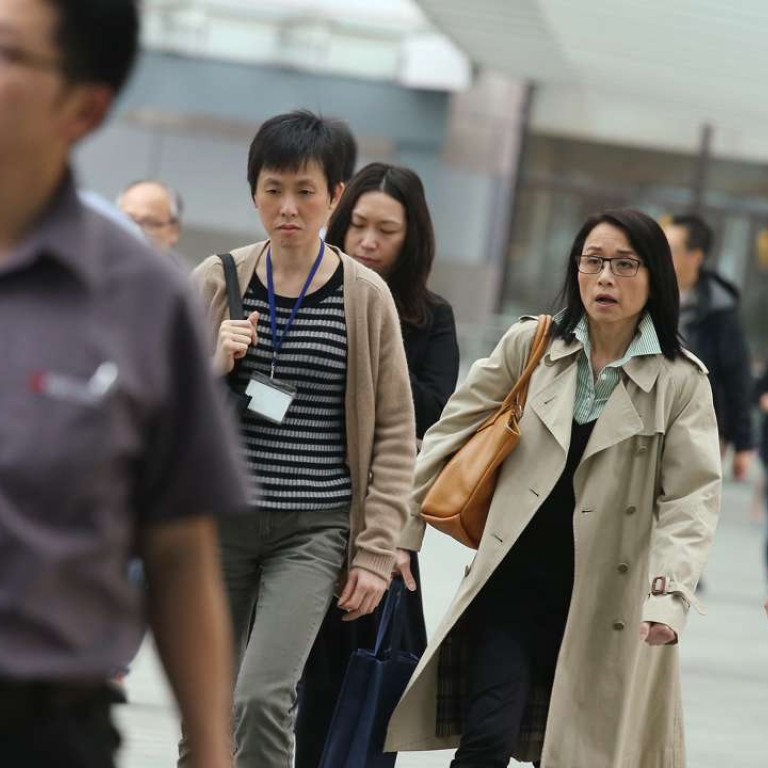
Gender pay gap widens among Hong Kong’s poorest workers, with women pulling in only 60 per cent of amount men earn
Women below poverty line earning HK$4,300 less than men on average, as many look to balance work and family needs with flexible contracts
The gender pay gap among those living below the poverty line has widened in the past 15 years, with women on average now earning only 60 per cent of the amount men do, according to an Oxfam report.
Last year, the average woman in a poor household earned HK$4,300 less than her male counterpart – that figure up from HK$2,500 in 2001. Fifteen years ago women were earning 67 per cent of what men pulled in, but that has now fallen to 60 per cent.
“A lot of poor working women have few job choices because of their household responsibilities,” Kalina Tsang Ka-wai, who heads Oxfam’s operations in Hong Kong, Macau and Taiwan, said. “They tend to take more low-paying jobs, which also have the least amount of employment protection.”
More than 66 per cent of people working below the poverty line doing fewer than 17 hours a week were women, according to Oxfam’s report, which was based on government statistics.
Most of the women worked contract jobs in non-technical industries or in services and sales, the report showed.
Tsang said women usually took on part-time work such as cleaning and dishwashing jobs on contracts which provided them with the flexibility needed to take care of children at home.
The city’s poverty line, set in 2013, is drawn at half of the median household income in line with household size.
Women account for just over half of the city’s poor, which amounted to 1.14 million people as of June last year, official figures show.
Wong Shek-hung, Oxfam’s Hong Kong programme manager, said that while career choices were one of the factors affecting the gender wage gap, discrimination may also play a role.
“It’s hard to conclude from the statistics, but we don’t rule out the possibility of discrimination. Some employers may not want to hire women who have children. But it could also be because of age or work experience,” Wong said.
Paul Yip Siu-fai, a professor at the University of Hong Kong who specialises in population studies, said the report reflected the changing landscape of the labour market rather than gender inequality.
“In the past decade, a lot of women who used to stay at home have come out to work because it’s not enough for men to be the only breadwinner in the family,” Yip said.
“The numbers are a reflection that the landscape is changing, not that women are being paid less for identical work.”
Oxfam called on the government to review its labour laws, which it said provided limited employment protection for those who take on casual or contract work, making it difficult for women to escape the poverty cycle.
Only those who have been employed by the same employer for four weeks in a row and work at least 18 hours a week are entitled to benefits such as paid rest days, sick and maternity leave.
The Labour Department said it had yet to come to a consensus on relaxing requirements to benefit more workers as the issue was “complicated” with “far-reaching implications”.

